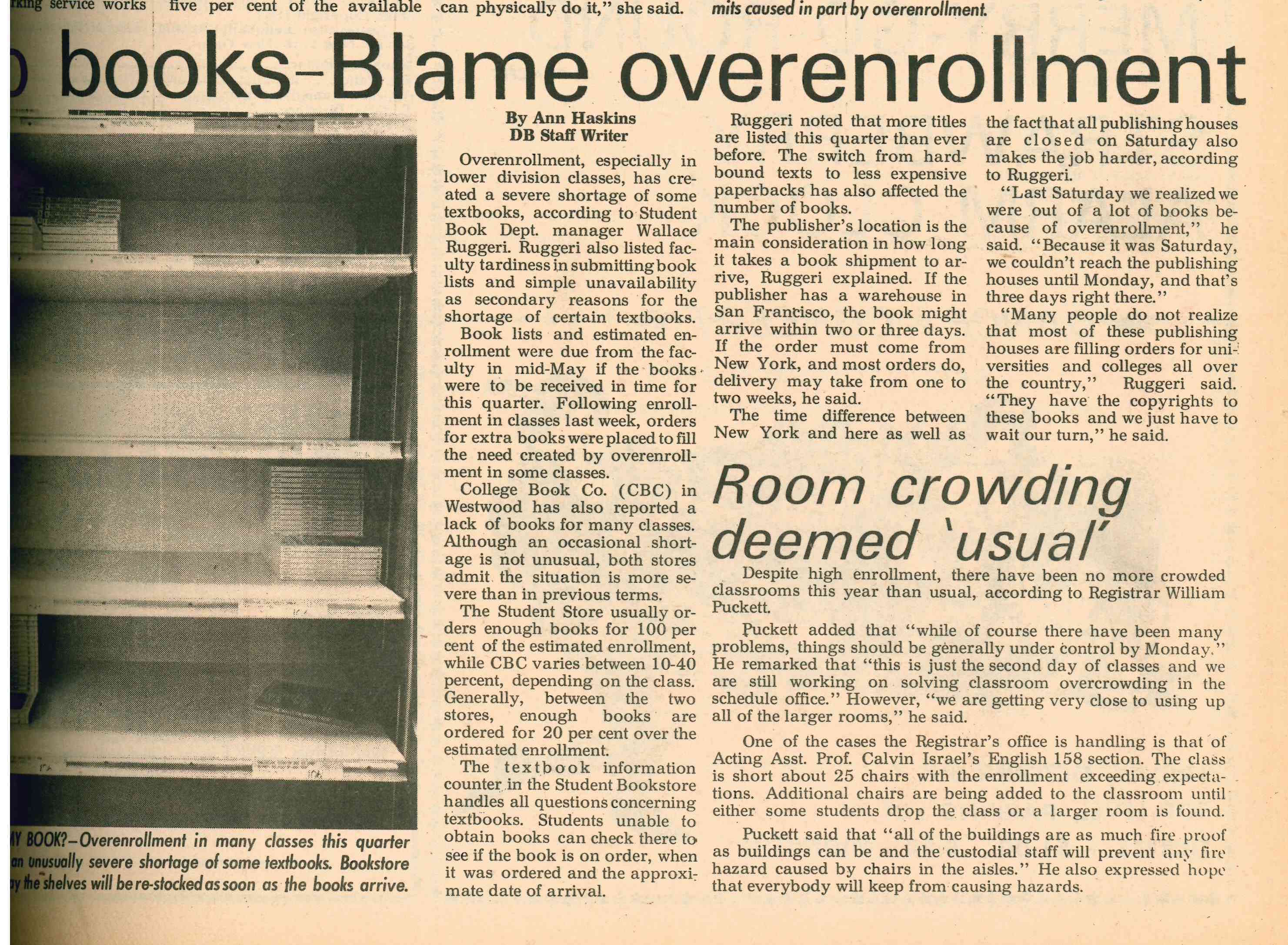Throwback Thursday: Tackling the eternal problem of overcrowding on campus

Other logistical issues once plagued students that have now been solved by large-scale online textbook retailers like Amazon. (Daily Bruin archives)
By Keshav Tadimeti
Oct. 6, 2016 2:06 p.m.
Students. More students. And even more students.
That’s been the tale of enrollment at UCLA.
The familiar groans of not being able to enroll in a class because the discussion sections fill up; the well-acquainted troubles of not finding a space to sit in class, let alone take notes; the nostalgic memories of not being able to order textbooks in time for class – we’ve all had these moments. In fact, some of us are feeling the heat right now, with the recent surge of admitted freshmen due to the University of California’s pledge to enroll 10,000 more California residents between 2016 and 2019.
But the issue of classroom over-enrollment isn’t unique to the 21st-century UCLA. After all, UCLA was a big place before it, well, became a big place.
A Daily Bruin news story published on Oct. 4, 1967, talks about how due to over-enrollment in lower division classes, the Student Book Department was facing a massive shortage of certain textbooks. According to then-Student Book Department manager, Wallace Ruggeri, heightened lower division class sizes and faculty tardiness in submitting book lists were the reasons for the textbook dilemma.
Back then, the student store used to order enough books for 100 percent of the estimated class enrollment – an onus that has since been shifted onto students with the rise of online retailers like Amazon. In addition, a company in Westwood known as the College Book Company would cover between 10 to 40 percent of books for the estimated enrollment, allowing for textbooks to be provided for up to 120 percent of the enrollment.
According to Ruggeri, due to more titles being requested than ever before, the fall quarter of 1967 underwent the disheartening textbook famine it did. Oddly enough, however, the crowding in the classrooms that year was no different than usual, according then-registrar William Puckett.
Puckett reassured The Bruin, saying “This is just the second day of classes and we are still working on solving classroom overcrowding in the schedule office.” He did, though, hint that matters would get more complicated in later years, adding “we are getting very close to using up all of the larger rooms.”
Ironically enough, what was UCLA’s problem in 1967 – too few textbooks but enough classroom space – has fallen on its head, with there now being enough textbooks but too little classroom space. As a result, UCLA ended up renovating some classrooms over the summer to prepare for the stampede of students who came in this fall, but the issue of classroom crowding is not disappearing anytime soon.
Thankfully, though, the issue of too few textbooks hasn’t returned to haunt us. Of course, some of us still have problems getting our hands on textbooks, but not so often that we get nightmares about it. With Amazon Prime, the UCLA online textbook store and the countless curbside online bookshops littering the Internet – not to mention the libraries and the countless UCLA textbook exchanges that take place on Facebook – we students have it pretty good.
Now we just have to solve the problem of how to escape studying.


